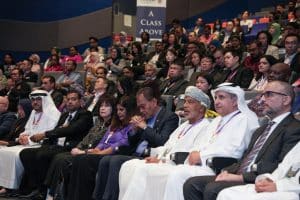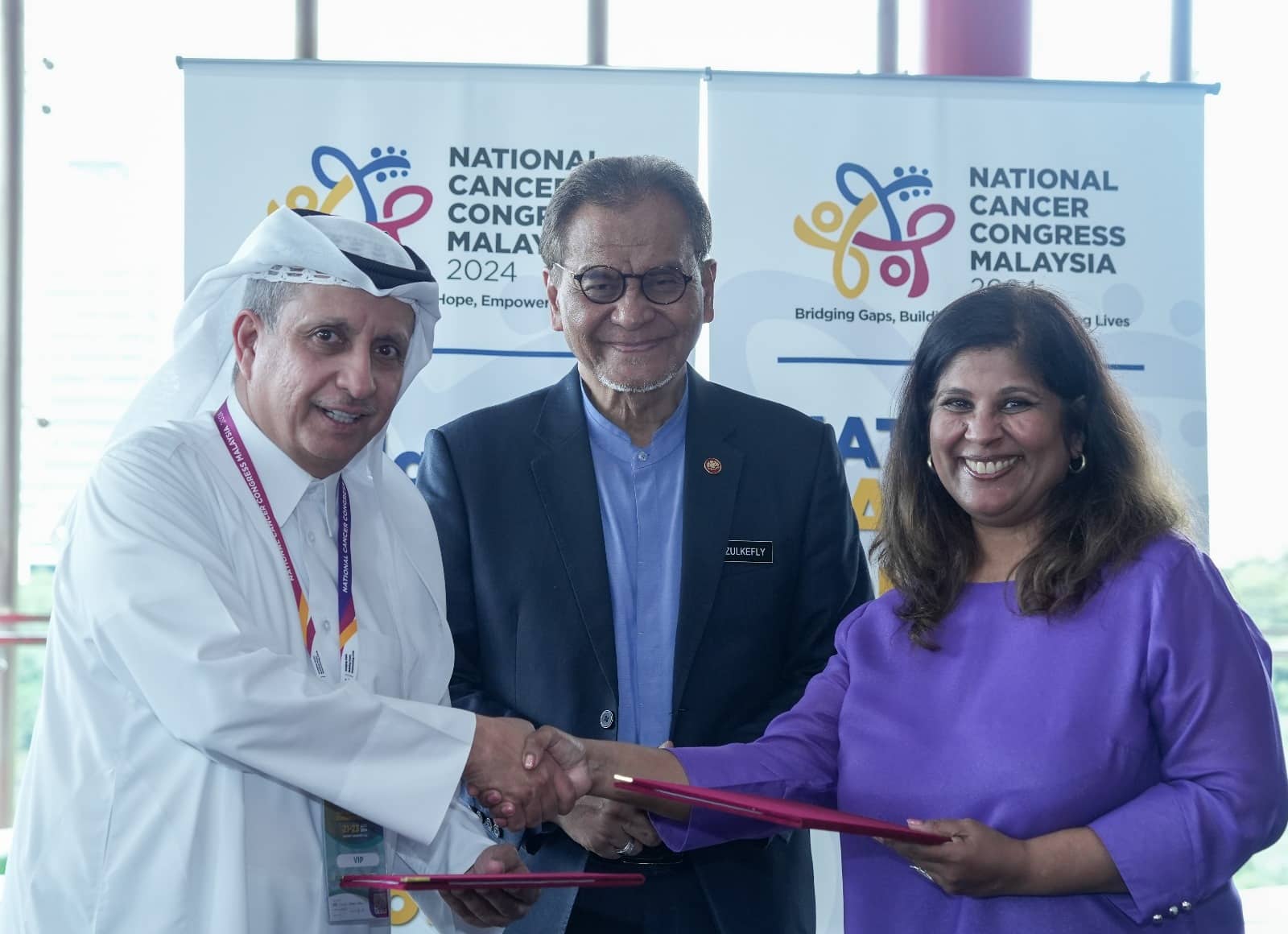” QCS” Signs Agreement with National Cancer Society of Malaysia
Qatar Cancer Society (QCS) and the National Cancer Society of Malaysia (NCSM) have signed a collaborative agreement. focusing on designing, organizing, and executing cancer-related activities within Qatar and Malaysia and in broader regional and global contexts. The signing ceremony was attended by HE Sheikh Dr. Khalid bin Jabor Al-Thani, Chairman of QCS, Dr. Saunthari Somasundaram, President of NCSM and Co-chairperson of NCD Malaysia, and HE Dr. Wahid Ali Said Al Kharusi, President of the Oman Cancer Association. The event was officiated by Yang Berhormat Datuk Seri Dr. Haji Dzulkefly Ahmad, Health Minister, Ministry of Health Malaysia.

H.E. Sheikh Dr. Khalid bin Jabor Al-Thani emphasized the significance of the agreement, stating: “This partnership marks a new chapter in our efforts to combat cancer. By working together and leveraging our combined expertise and resources, we can enhance cancer care, raise awareness, and provide support not only in Qatar and Malaysia but also on a global scale.”
The agreement was signed on the sidelines of the National Cancer Congress of Malaysia, held from June 21st to 23rd, 2024, at Sunway University, Kuala Lumpur. The congress, themed “Bridging Gaps, Building Hope, Empowering Lives,” provided a comprehensive overview of the cancer care continuum, addressing aspects such as prevention, screening and diagnosis, treatment, survivorship, advocacy, and policy. The event attracted speakers and researchers from Malaysia, Qatar, Oman, UAE, USA, UK, France, Australia, Switzerland, Japan, Singapore, China, Bangladesh, Thailand, Nigeria, India, and Kenya, and was attended by 1,000 attendees, including healthcare professionals, researchers, academia, cancer advocates, and cancer policymakers.
Organized by the National Cancer Society of Malaysia, Sunway University, NCD Malaysia, and the Malaysian Medical Association Public Health Society, the congress highlighted the global effort in combating cancer.
The conference was attended by 1,000 health professionals, researchers, academics, cancer patient advocates, and health policymakers. The event attracted speakers and researchers from Malaysia, Qatar, Oman, the United Arab Emirates, the United States, the United Kingdom, France, Australia, Switzerland, Japan, Singapore, China, Bangladesh, Thailand, Nigeria, India, and Kenya.

The Qatar Cancer Society delegation played a pivotal role, led by Chairman H.E. Sheikh Dr. Khalid bin Jabor Al-Thani and Dr. Hadi Mohamed Abu Rasheed, QCS’s Scientific Advisor, who participated in the planning committee and in a key discussion titled “How We Can Do Better: Roles and Responsibilities of All Stakeholders in Achieving the Health Agenda,” alongside the active participation of H.E. Khairy Jamaluddin, former Minister of Health in Malaysia.
In the conference’s opening session, “Leading Change: The Impact of the Qatar Cancer Society on Cancer Awareness and Patient Support,” H.E. Sheikh Dr. Khalid bin Jabor Al-Thani highlighted QCS’s initiatives and achievements in raising cancer awareness and supporting patients. Additionally, Dr. Hadi delivered a research lecture titled “Measures of Cancer Care Efficiency,” providing valuable insights into improving cancer care.
On the sidelines of the conference, QCS showcased its collaborative efforts through a joint awareness booth with the Oman Cancer Association (OCA), reflecting the twinning between QCS and OCA and promoting their unified approach to increasing cancer awareness and prevention.
Commenting on the conference, Dr. Hadi Mohamed Abu Rasheed said: “Our participation in this conference and the signing of the agreement with the National Cancer Society of Malaysia underscores the strength of collaboration in the fight against cancer. By sharing knowledge and working together, we can make greater strides in prevention and treatment, as this partnership is a crucial step toward achieving our shared goal of reducing the global cancer burden.”
The conference provided a comprehensive overview of cancer care, covering critical aspects such as prevention, screening, diagnosis, treatment, survivorship, advocacy, and policies. The participation of speakers and researchers from various countries reflected a global commitment to advancing and supporting cancer care

